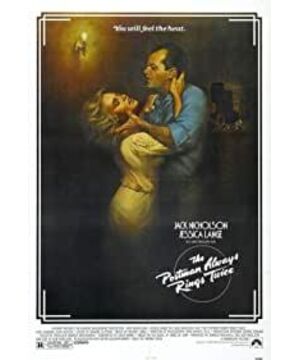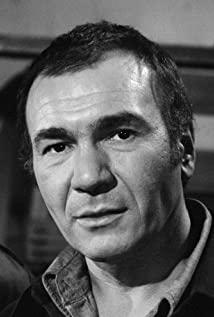Jessica Lange, who played the lonely young woman in the movie, killed her husband for her lust and her lover. But from the beginning to the end, I did not have any disgust or disgust for her, but I was always worried that she would be treated badly. Although she met a lecherous guy with a criminal record, their relationship has really gone through all kinds of things. The test, even death, is after marrying the person she loves. A happy ending ends in death. She acted very well, tall and big, but lovable. Thirteen years later, in 1994, she won the Oscar for Best Actress with "The Indulgence of the Heart".
Jack Nicholson Jack Nicholson, do I need to say it? Here he plays a gangster who just got out of prison, with affection and righteousness.
In fact, I use the names of a few acquaintances to tell this story, which may be better for everyone to understand: a senior official from Ximen who just got out of prison passed by Wu Dalang’s biscuits shop and wanted to cheat and leave, but when he saw the beautiful Pan Jinlian, he accepted Wu Dalang The labor contract of ......
Add a little extracurricular topic:
"The Postman Always Rings Twice" (The Postman Always Rings Twice) is a novel written in 1934 by American writer James Caan. It is said to have been adapted into films three times before: the first was in 1939, when Pierre Chenard in France made "The Last Turn"; Sconti made "The Sinking" without the consent of James Caan, which led to the film's release in the United States in 1975; the third time was the 1946 film of the same name by American director Tye Garnett .
There are three theories about the origin of the movie name (book title):
First, the author Kane once explained that the first thirteen submissions of "The Postman Always Rings Twice" were rejected by the publisher until the fourteenth effort. to succeed. When the publisher asked Kane what title he wanted to give his manuscript, Kane recalled his own experience and posed the topic "The Postman Always Rings Twice."
Does that mean that even if the gate of destiny is always closed, there will always be a day when it will be opened?
2. William Marlin, a writer of tough-guy novels, said that the title of the book may be derived from a news story that was heard in the streets in 1927 and 1928. Ruth Hind, nicknamed "Tyger Woman", and her lover, Judd Gray, murdered her husband Albert. The case was widely circulated by East Coast newspapers, and the New York Daily News even published a photo of Ruth in the electric chair. Marlin noticed that Kane may have borrowed the title from one of Ruth's confessions. Original text: Ruth bought her husband life insurance, but told the postman to only deliver the payment slip to her. The postman would ring the doorbell twice as a signal.
3. According to James Cain biographer Roy Hoopers, Cain and his publisher quarreled over which title to choose, and there was never a decision. In the end, Cain and the playwright Vincent Lawrence came up with "The Postman Always Rings Twice". The reason for this name is that Vincent found himself anxiously waiting for news after submitting a new manuscript, and sometimes especially did not want to hear the doorbell. The strategy of not listening to the doorbell often ends in failure, because the postman often rings the doorbell multiple times to make sure the owner of the house hears it. Kane and Vincent agree that The Postman Always Rings Twice is a metaphor for Frank's situation at the end of the novel.
In this interpretation, "The Postman" is like an incarnation of God or fate, delivering Frank his own death as revenge for Nick's murder. Frank escapes the law for the first time and misses the first bell, but the postman (Fate) still rings the doorbell, this time for death. Frank was accused of Korra's murder and sentenced to death.
View more about The Postman Always Rings Twice reviews











